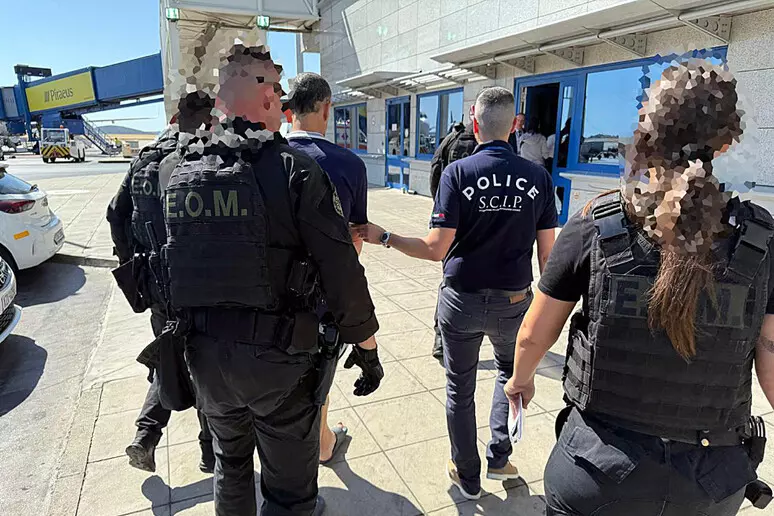Francis Kaufmann said nothing.
During a preliminary court hearing held Monday inside the high-security wing of Rebibbia prison, the 46-year-old American declined to answer any questions from Italian authorities. Accused of killing his partner, Anastasia Trofimova, and their infant daughter, Andromeda, Kaufmann invoked his right to remain silent.
Judge Flavia Costantini presided over the closed session, alongside Deputy Prosecutor Giuseppe Cascini and Prosecutor Antonio Verdi. Kaufmann, recently extradited from Greece, offered no statement—no denial, no admission, no reaction at all—as prosecutors laid out the preliminary findings of a case that continues to tighten around him.
The bodies of Trofimova and her baby were found on June 7 in separate locations within Villa Pamphili, one of Rome’s largest public parks. The mother had been partially concealed beneath a black trash bag; the infant lay nearby. Early autopsy reports suggest both victims were suffocated, possibly at different times.
Surveillance footage and witness accounts indicate Kaufmann was the last known person to be seen with them. Two days before the bodies were discovered, on June 5, police photographed him inside the park carrying the child. He had reportedly been stopped during a routine check but was allowed to leave, despite appearing confused and being in the company of a newborn. Investigators are now reviewing that encounter, questioning why no further action was taken at the time.
Kaufmann fled Italy soon after the alleged murders. He resurfaced on June 13 on the Greek island of Skiathos, living under the alias “Rexal Ford” and claiming to have no family. Authorities in Greece detained him in Larissa, where he displayed erratic and aggressive behavior—smashing property inside his cell, shouting incoherent claims about secret conspiracies, mafia threats, and persecution by international intelligence services.
He was extradited to Italy on July 11 aboard a military flight and arrived at Ciampino airport in a visibly agitated state. According to law enforcement sources, he threatened officers during the transfer and alleged he had been assaulted. Doctors at Tor Vergata hospital later examined him but found no physical signs of injury.
Since his return, Kaufmann has been held in solitary confinement. Those who have interacted with him describe a sharp change in demeanor: no longer erratic, but intensely focused, withdrawn, and uncooperative. Investigators believe his psychological state may fluctuate depending on substance use. At present, he is described as sober and calculating.
Kaufmann and Trofimova had been in a turbulent relationship, according to police. Trofimova, originally from Russia, had been living in Rome for several years. On the morning of her disappearance, she was seen entering Villa Pamphili with Kaufmann and their daughter. None of the three were seen exiting.
Kaufmann now faces charges of voluntary double homicide. Prosecutors are continuing to piece together the final movements of the victims, focusing on the timeline between their likely times of death. At the same time, internal reviews are underway into the police officers who released Kaufmann on June 5 without further intervention.
His silence in court leaves key questions unanswered—but prosecutors insist the evidence is already damning. “We’re not relying on his testimony,” said one official close to the case. “The facts are speaking for themselves.”












